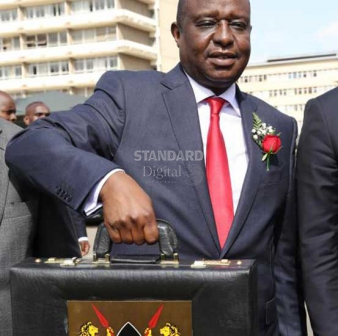
President Uhuru Kenyatta’s re-election bid in the August polls promises to be a costly affair for ordinary citizens through the record-breaking Sh900 billion hole in the budget.
He plans to spend this money in the next financial year starting July 1, on among other items lavishing civil servants with improved salaries and wages within weeks to the August 8 General Elections. A decision to improve salaries flies in the face of Kenyatta’s previous position that the country could not afford any more pay, best illustrated by the tough negotiations with striking doctors who have been away from work for over two months.